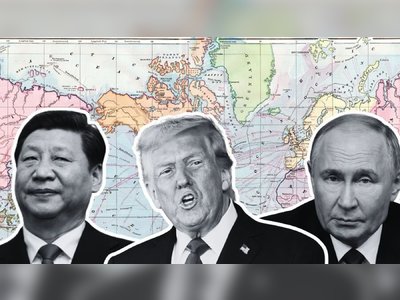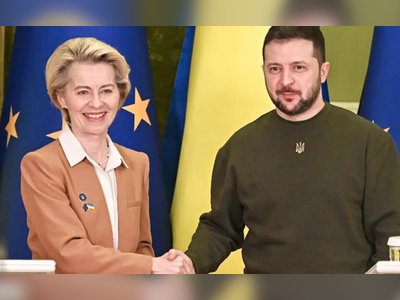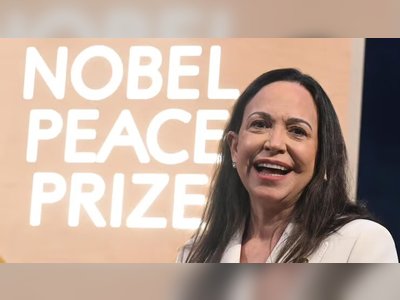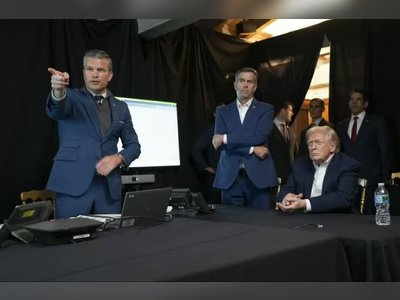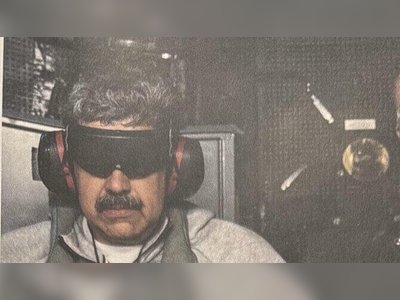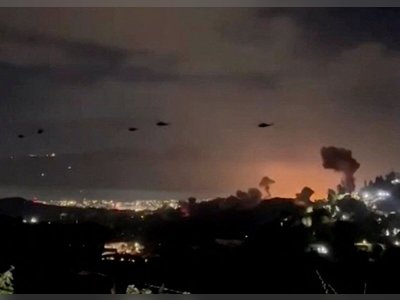
Prospects for a Ceasefire in Ukraine: Ukraine Agrees, what Does Putin Say?
Ukraine expresses readiness for a temporary ceasefire as diplomatic discussions intensify.
Ukraine has agreed to a temporary ceasefire proposal as negotiations between Ukrainian and American delegations reached a positive outcome in Saudi Arabia.
These discussions lasted over seven hours, with both sides expressing an intention to initiate further talks towards a permanent peace.
The United States has proposed a 30-day ceasefire that can be extended upon mutual agreement by both parties, contingent on acceptance by the Russian Federation.
Both nations aim to name their negotiation teams and commence discussions aimed at securing Ukraine's long-term security.
Ukrainian President Volodymyr Zelensky emphasized that a ceasefire could commence 'immediately' if accepted by Moscow.
He noted that if Russia were to agree to a comprehensive halt to hostilities—encompassing all forms of military engagement along the front lines, particularly drone and missile attacks—then a ceasefire would begin right away.
President Zelensky reiterated Ukraine's readiness for peace while calling upon Russia to demonstrate its willingness to end the conflict.
The proposed ceasefire is structured in four phases, designed to facilitate a systematic halt to hostilities.
These phases are:
Suspension of Drone Attacks: Both parties would cease aerial strikes, significantly impacting Ukraine's energy infrastructure and halting Ukrainian operations targeting Russian cities, including Moscow.
End of Long-Range Missile Use: Russia, which has a significant stockpile of long-range weaponry compared to Ukraine, would suspend its missile strikes that have frequently caused casualties in Ukraine.
Halting Operations in the Black Sea: As the conflict extends into maritime territories, a pause in naval operations would provide necessary regrouping time for forces on both sides.
Comprehensive Ceasefire: This final phase would involve a total cessation of hostilities following the previous three steps.
According to U.S. Secretary of State Marco Rubio, the next steps in this diplomatic process rest with Moscow.
Kremlin spokesperson Dmitry Peskov stated that Russia is awaiting information from Washington regarding the ceasefire proposal.
Peskov also mentioned the potential for a telephone conversation between Russian President Vladimir Putin and President Donald Trump to discuss the ceasefire.
He acknowledged that existing channels for dialogue with the U.S. could facilitate rapid arrangements should the need arise.
However, reports from Moscow indicate skepticism regarding Russia's acceptance of the ceasefire without concrete conditions and guarantees.
An anonymous Kremlin source suggested that President Putin remains in a strong position due to perceived advances in the conflict, thus complicating prospects for agreeing to a ceasefire in its current form.
In response to the ceasefire proposition, Trump’s special envoy for the Middle East, Steve Vitkof, is set to travel to Moscow to persuade Putin to accept the terms.
Vitkof has previously engaged with Kremlin officials effectively, including securing the release of an American citizen from detention in Russia.
Speculation suggests that Vitkof may meet with Putin soon, as the urgency to finalize a ceasefire grows amid ongoing diplomatic negotiations.
Russian Foreign Ministry spokesperson Maria Zakharova has confirmed that bilateral contacts between Russia and the U.S. are currently very active, highlighting the swift organization of discussions at various levels.
These discussions lasted over seven hours, with both sides expressing an intention to initiate further talks towards a permanent peace.
The United States has proposed a 30-day ceasefire that can be extended upon mutual agreement by both parties, contingent on acceptance by the Russian Federation.
Both nations aim to name their negotiation teams and commence discussions aimed at securing Ukraine's long-term security.
Ukrainian President Volodymyr Zelensky emphasized that a ceasefire could commence 'immediately' if accepted by Moscow.
He noted that if Russia were to agree to a comprehensive halt to hostilities—encompassing all forms of military engagement along the front lines, particularly drone and missile attacks—then a ceasefire would begin right away.
President Zelensky reiterated Ukraine's readiness for peace while calling upon Russia to demonstrate its willingness to end the conflict.
The proposed ceasefire is structured in four phases, designed to facilitate a systematic halt to hostilities.
These phases are:
Suspension of Drone Attacks: Both parties would cease aerial strikes, significantly impacting Ukraine's energy infrastructure and halting Ukrainian operations targeting Russian cities, including Moscow.
End of Long-Range Missile Use: Russia, which has a significant stockpile of long-range weaponry compared to Ukraine, would suspend its missile strikes that have frequently caused casualties in Ukraine.
Halting Operations in the Black Sea: As the conflict extends into maritime territories, a pause in naval operations would provide necessary regrouping time for forces on both sides.
Comprehensive Ceasefire: This final phase would involve a total cessation of hostilities following the previous three steps.
According to U.S. Secretary of State Marco Rubio, the next steps in this diplomatic process rest with Moscow.
Kremlin spokesperson Dmitry Peskov stated that Russia is awaiting information from Washington regarding the ceasefire proposal.
Peskov also mentioned the potential for a telephone conversation between Russian President Vladimir Putin and President Donald Trump to discuss the ceasefire.
He acknowledged that existing channels for dialogue with the U.S. could facilitate rapid arrangements should the need arise.
However, reports from Moscow indicate skepticism regarding Russia's acceptance of the ceasefire without concrete conditions and guarantees.
An anonymous Kremlin source suggested that President Putin remains in a strong position due to perceived advances in the conflict, thus complicating prospects for agreeing to a ceasefire in its current form.
In response to the ceasefire proposition, Trump’s special envoy for the Middle East, Steve Vitkof, is set to travel to Moscow to persuade Putin to accept the terms.
Vitkof has previously engaged with Kremlin officials effectively, including securing the release of an American citizen from detention in Russia.
Speculation suggests that Vitkof may meet with Putin soon, as the urgency to finalize a ceasefire grows amid ongoing diplomatic negotiations.
Russian Foreign Ministry spokesperson Maria Zakharova has confirmed that bilateral contacts between Russia and the U.S. are currently very active, highlighting the swift organization of discussions at various levels.
AI Disclaimer: An advanced artificial intelligence (AI) system generated the content of this page on its own. This innovative technology conducts extensive research from a variety of reliable sources, performs rigorous fact-checking and verification, cleans up and balances biased or manipulated content, and presents a minimal factual summary that is just enough yet essential for you to function as an informed and educated citizen. Please keep in mind, however, that this system is an evolving technology, and as a result, the article may contain accidental inaccuracies or errors. We urge you to help us improve our site by reporting any inaccuracies you find using the "Contact Us" link at the bottom of this page. Your helpful feedback helps us improve our system and deliver more precise content. When you find an article of interest here, please look for the full and extensive coverage of this topic in traditional news sources, as they are written by professional journalists that we try to support, not replace. We appreciate your understanding and assistance.



